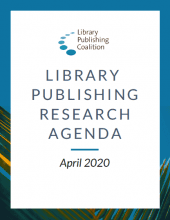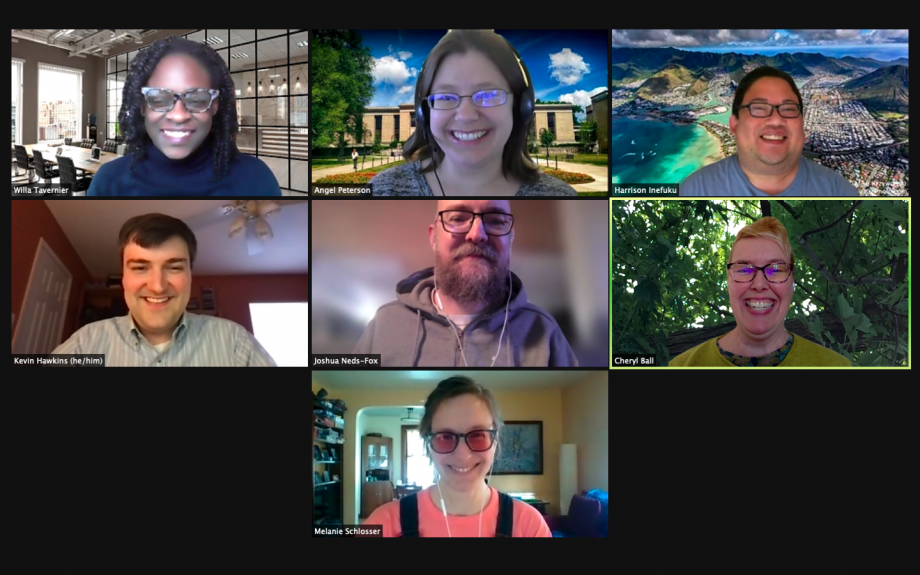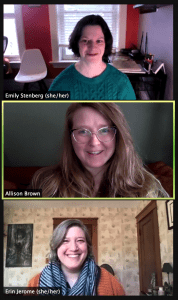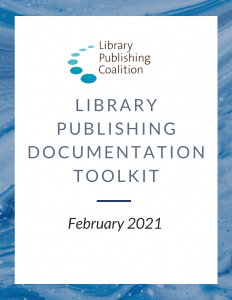February 25, 2021
By Nancy Adams
As part of our commitment to anti-racism, LPC’s Diversity and Inclusion Task Force has prepared the LPC Roadmap for Anti-Racist Practice. This document owes a great deal to the ideas and input of library publishing workers at last fall’s anti-racism community call, which was hosted by the task force and the Board. In that call, participants were asked to consider how LPC has perpetuated inequality and marginalization of Black, Indigenous, and people of color (BIPOC) and to envision ways that we can adopt anti-racist practice throughout the organization. The task force took the resulting ideas, further developed them, and organized them into an action plan.
The roadmap consists of a 6-month plan that the task force is currently enacting, and offers a menu of longer-term ideas that the organization and members can choose to implement. The items are organized in six categories: building an anti-racist organization, community building, demographics, education, resource creation, and supporting BIPOC library publishing workers. Several of the items suggested for LPC Committees are to support members in implementing anti-racism in their programs. We want to work together as a community to make library publishing an inclusive, equitable, flourishing endeavor.
As this roadmap is meant to guide the entire organization in anti-racist practice, you will see a number of different LPC groups referenced as being responsible for individual items. These should be considered suggestions from the task force at this point. Since the soon-to-be-established Diversity, Equity, and Inclusion Committee will be working in a consultative capacity with its peer committees and task forces, there will be plenty of opportunities to review the items in the roadmap and decide together what to prioritize.
This publication is a snapshot of an internal, working document that will be updated as work progresses. As future iterations of the DEI Committee and other LPC groups identify near-term action items, our expectation is that a new snapshot can be generated for the community.
LPC Diversity and Inclusion Task Force: Cheryl Ball (Wayne State University), Kevin Hawkins (University of North Texas), Harrison Inefuku (Iowa State University), Joshua Neds-Fox (Wayne State University), Angel Peterson (Penn State University), Willa Tavernier (Indiana University)



 This Kudos recognizes Allison Brown (SUNY Geneseo), Erin Jerome (University of Massachusetts), and Emily Stenberg (Washington University St. Louis) for their stellar work on
This Kudos recognizes Allison Brown (SUNY Geneseo), Erin Jerome (University of Massachusetts), and Emily Stenberg (Washington University St. Louis) for their stellar work on 
